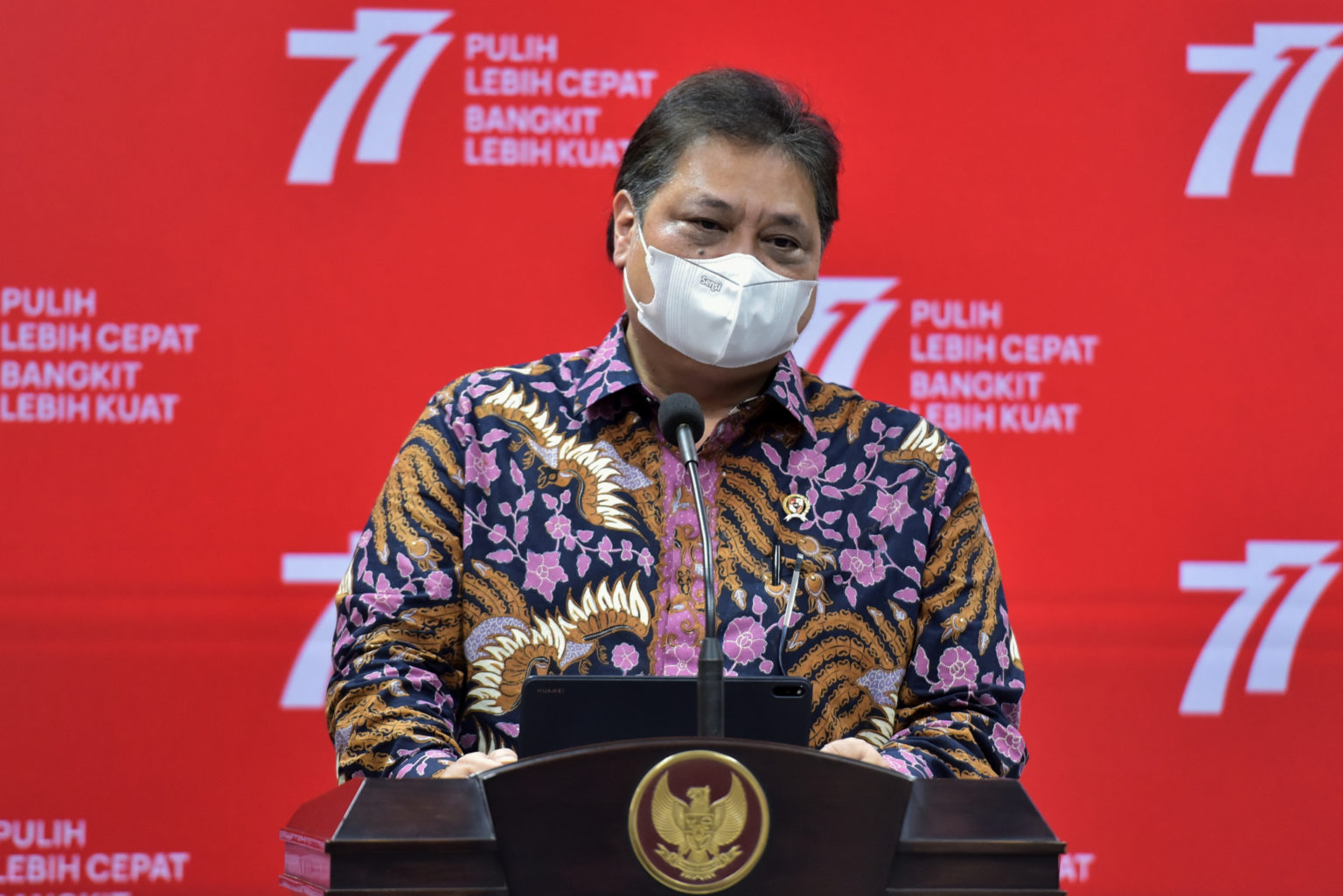Gov’t Imposes Level 1 PPKM Outside Java, Bali Islands

Coordinating Minister for Economic Affairs Airlangga Hartarto (Photo by: PR/Agung)
The Indonesian Government decided to impose Level 1 public activity restrictions (PPKM) in all regencies/municipalities outside Java and Bali islands.
“Level 1 PPKM is implemented in 386 regencies/municipalities outside Java and Bali,” Coordinating Minister for Economic Affairs Airlangga Hartarto said in a press statement after a limited meeting at the Presidential Palace, Tuesday (08/23).
Airlangga said that the COVID-19 pandemic in the country was successfully under control at a low level compared to several other countries.
“In Japan, the number is still high at 218,000 (cases). The number (of cases) in the United States, Australia, and India are also relatively high, while in Indonesia, the 7-day moving average is at 4,683 (cases). This was relatively low compared to other countries,” Airlangga added.
The Coordinating Minister also stated that the national weekly positivity rate is at 9 percent, while the number of active cases is around 48,000 cases. He also stated that the average case falls by 1.94 percent from the previous week and the effective reproduction number (Rt) at the national level is also down to 1.12 percent.
“The (daily) COVID-19 cases in Java and Bali are around 3,000 cases or 89 percent, while the cases outside Java and Bali are around 300 (cases) or 10 percent,” he asserted.
On vaccination, Airlangga went on to say that there are still three provinces outside Java and Bali with coverage of the first dose of vaccination below 70 percent, namely the provinces of Maluku, Papua, and West Papua. In addition, as many as 18 provinces have a second dose vaccination coverage below 70 percent and 20 provinces with a booster dose vaccination coverage below 30 percent.
Until August 19, the Government has spent Rp178 trillion for COVID-19 Handling and National Economic Recovery (PC-PEN) program. “Rp35.4 trillion has been used for health handling or equivalent to 28.9 percent of the ceiling of Rp122.54 trillion. They are used for patient claims, incentives for health workers, vaccine procurement, health taxation, and (financial) support for regional budgets,” Airlangga said.
Meanwhile, for public protection, Rp82.3 trillion or 53.2 percent of the ceiling has been realized for the Family Hope Program (PKH) with 10 million beneficiaries, Staple Food Card program with 18.8 million beneficiaries, Direct Cash Assistance (BLT) program amounting to Rp7.2 trillion for purchasing of cooking oil with 23.9 million recipients, Village BLT of Rp17.1 trillion with 7.5 million recipients, assistance program amounting to Rp1.3 trillion for street vendors and fishers’ stalls, and Pre-Employment Card program of Rp8.9 trillion for 2.5 million participants.
For strengthening economic recovery, Rp60.4 trillion or 33.8 percent of the ceiling of Rp178.32 trillion has been realized. This budget is used for, among others, labor-intensive program, infrastructure and connectivity, tourism and creative economy, food security, ICT, industrial estates, funding supports for MSMEs, and tax incentives.
“Therefore, the function of the State Budget as a shock absorber is carried out and the PC-PEN program is entirely implemented according to the existing dynamics,” he remarked. (TGH/UN) (FI/HD/MUR)








